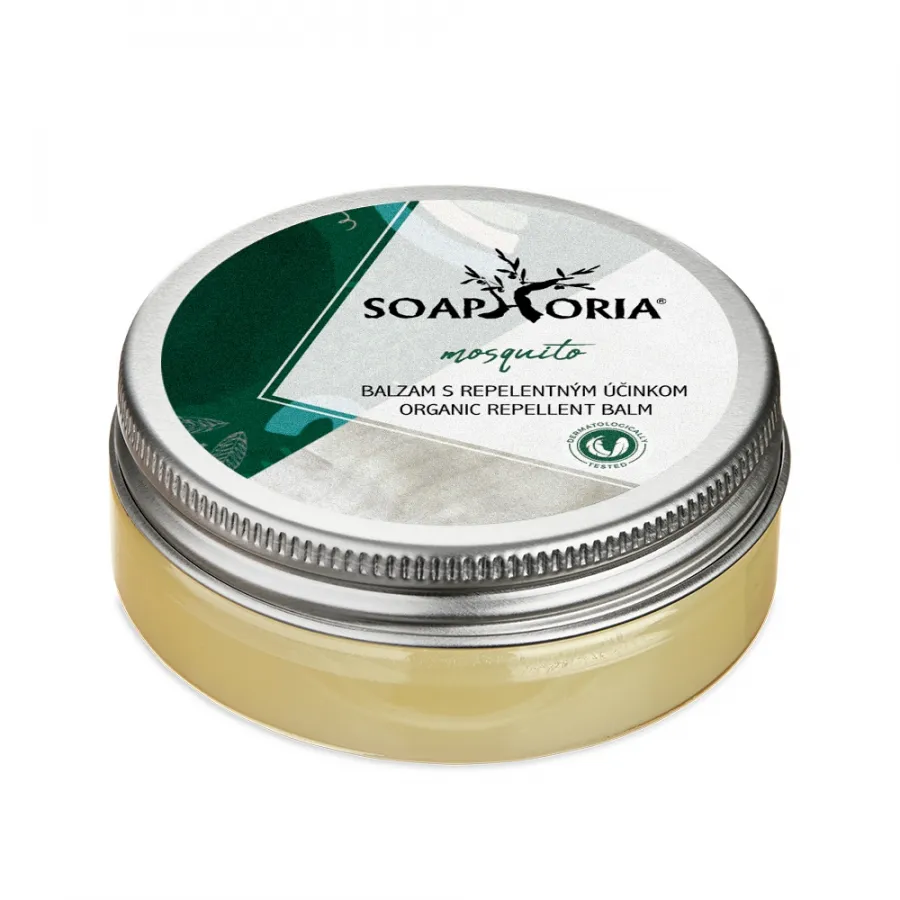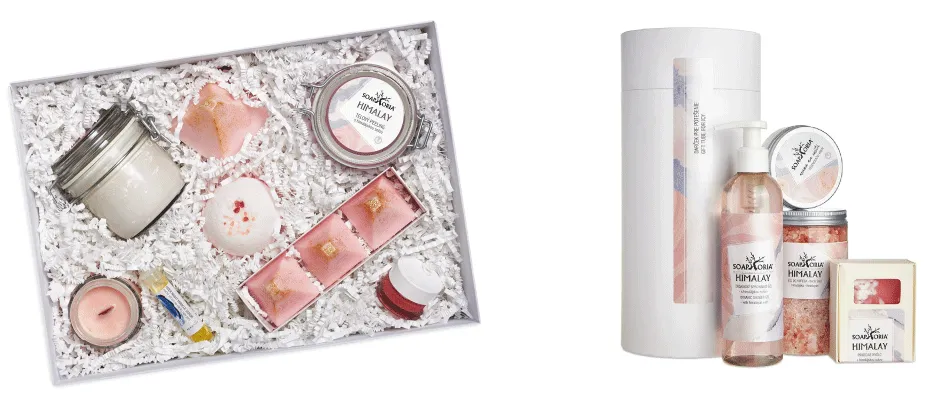Natural repellent, against insects, natural protection against insects
WHAT IS A REPELLENT?
Repellents are cosmetic products that are used to repel insects. These products are often used in areas with a high incidence of mosquitoes, flies, midges and other insects that can cause skin irritation and carry the risk of disease transmission.
There are two basic types of repellants: chemical and natural. Chemical repellants are made from synthetic compounds that have a deterrent effect on insects. These ingredients typically include DEET, picaridin, or IR3535. On the other hand, natural repellents are created from natural ingredients that have a similar effect on insects. Natural repellants contain ingredients such as essential oils, citronella, lavender or eucalyptus.
Chemical repellants are often considered more effective than natural repellants, but they also have their drawbacks. Some ingredients in chemical repellants can be harmful to health, especially when used in large quantities or with long-term use. DEET, for example, can cause skin irritation and can be toxic to some species of animals and plants.
On the other hand, natural repellents are often considered safer and more environmentally friendly. Natural ingredients such as essential oils and citronella repel insects and are less likely to cause unwanted effects than chemical repellents.
Several factors should be considered when choosing a repellent, such as the type of insect you want to repel, the amount of time spent outdoors, and environmental conditions. If you are going to an area with a high risk of disease transmission, you should consider using a repellent with a high content of DEET or other chemical compounds that have an effective deterrent effect. However, if it's a short trip to a place with a lower risk of disease transmission, or if you have sensitive skin, natural repellants may be a better choice. Natural repellants are usually gentler on sensitive skin and can also be used on children and pregnant women.
When using the repellent, it is important to follow the instructions for use and not to apply the product to damaged or sensitive skin. Repellents are usually applied to the skin, but can also be used on clothing and other surfaces to increase their effectiveness.
In addition to traditional repellents, new products such as repellent bracelets and patches are appearing on the market. These products contain natural ingredients or chemical compounds that are released gradually and provide effective protection against insects. Repellent bracelets and patches are practical as they do not need to be applied directly to the skin and are suitable for those with sensitive skin or who want to avoid contact with chemicals.
Last but not least, it is important to remember that repellents are not 100% effective and do not guarantee protection against every type of insect. Therefore, they should be used in combination with other measures, such as clothing that covers as much skin as possible and the use of nets or mosquito nets, especially at night.
WHAT ARE THE BENEFITS OF NATURAL REPELLENTS
Natural repellants are currently more popular than chemical repellants because they have several advantages and fewer disadvantages. Here are 10 reasons why a natural repellent might be a better choice for you:
Natural repellents are more environmentally friendly. Chemical repellants contain synthetic compounds that can be harmful to nature.
Natural repellants do not contain compounds such as DEET, which can be toxic to some species of animals and plants.
Natural repellants can be less aggressive for sensitive skin that can be irritated by chemical repellants.
Natural repellants are made from natural ingredients that have a more pleasant and less intense smell than chemical repellants.
Natural repellants contain ingredients such as essential oils that also have other health and well-being benefits, such as relieving stress and tension.
Natural repellants can be effective against several types of insects at once, which can be an advantage in areas where there are many different types of insects.
Natural repellants can also be applied to clothing and other surfaces to increase their effectiveness.
Natural repellants are often cheaper than chemical repellants because they are made from cheaper raw materials.
Natural repellants can also be used for children and pregnant women because they contain ingredients that are less toxic and harmful.
Natural repellants are often available in a variety of forms such as sprays, creams, gels, wristbands and patches, allowing for easier use and customization to individual needs.
HOW REPELLENT ESSENTIAL OILS WORK
Repellent essential oils are natural essential oils that have the ability to repel insects and other pest organisms such as ticks, mosquitoes, flies and ants. These essential oils are made from plants and their repellent properties come from the chemical compounds they contain.
The most commonly used repellent essential oils are lemon eucalyptus, peppermint, lavender, rosemary, lemongrass, tea tree and eucalyptus. Each of these oils contains different chemical compounds that have repellent effects.
The mechanism of action of repellent essential oils is that these oils release chemical compounds that disgust and repel insects. These compounds can be odors that are unpleasant to insects, or chemical compounds that have a toxic or deterrent effect on insects.
In addition to their repellent effects, many essential oils have other health and well-being benefits. For example, lavender oil can be useful for relieving stress and tension, while eucalyptus oil has anti-inflammatory properties and can help with respiratory problems.
When using repellent essential oils, it is important to follow some basic safety precautions. Some essential oils can be toxic, so use with caution and follow recommended dosages. It is also important to use only high-quality essential oils and avoid contact with eyes and mucous membranes.
Even if you use the most effective repellent, it is not 100% protection against insects and bites will sometimes become a necessity. If this happens, there are some steps you can take to relieve itching and reduce skin irritation.
HOW TO TREAT INSECT BITES
The first step should be cleaning the affected area. Wash the affected area with soap and water to reduce the risk of infection. If you are in nature and do not have access to water, you can use wet wipes or disinfectant wipes.
If you have a mosquito or other insect bite, you can use chlorophenamine or other antihistamines to relieve itching and reduce irritation. You can also apply cold compresses or ice cubes wrapped in a towel to the bite site to reduce swelling and itching.
If you have severe reactions to an insect bite, such as dizziness, nausea or difficulty breathing, it is important to seek medical attention immediately. In some cases, an epinephrine injection may be needed to relieve severe allergic reactions.
You can also take other measures to prevent insect bites, such as using nets or mosquito nets, especially at night when insects are most active. You can also wear clothing that covers as much skin as possible and avoid using perfumes and other scented products that can attract insects.
Aloe vera gel is an excellent natural tool for treating insect bites for several reasons. As a natural remedy, it has many properties that can help reduce the swelling and itching caused by a bite.
One of the main reasons why aloe vera is a good remedy for insect bites is its anti-inflammatory and soothing properties. Aloe vera gel contains enzymes and ingredients that can help reduce swelling and skin irritation and relieve itching.
In addition, aloe vera gel also has antibacterial and antiseptic properties that can help prevent infection and speed healing. These properties can be especially helpful if the bite has become more serious or other injuries have occurred in the affected area.
Aloe vera is also rich in vitamins and minerals that can help the skin recover faster and provide additional nourishment. Vitamin E in aloe vera has antioxidant properties that help protect the skin from free radicals and stimulate its regeneration.
In addition, aloe vera gel is gentle and does not disturb the natural balance of the skin, which is especially important for sensitive skin. Many traditional anti-bite remedies contain strong ingredients that can lead to irritation and other problems.










































